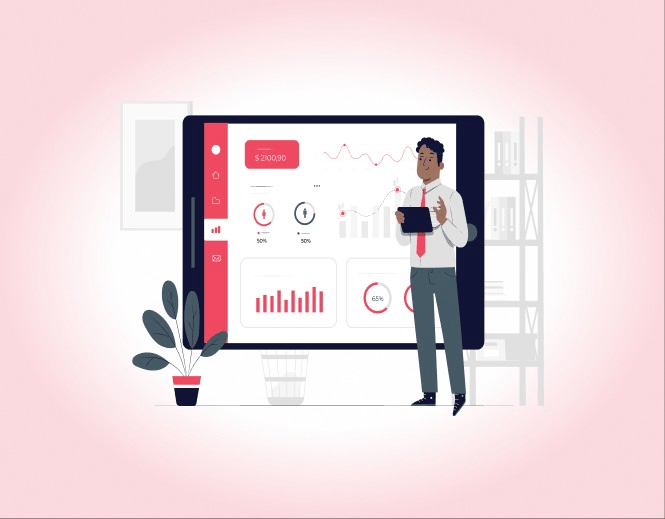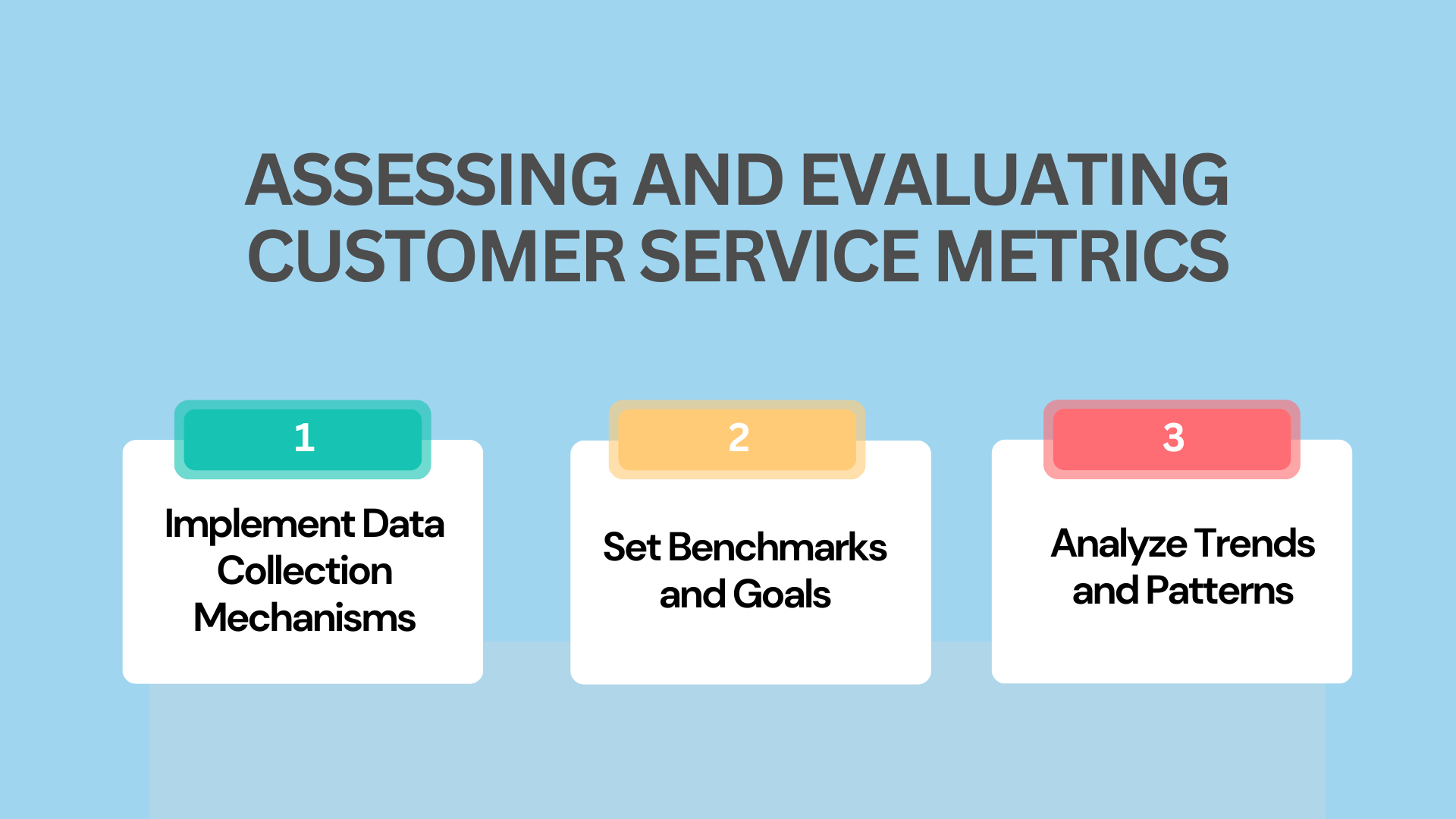
Home »
Strategies For Exceptional Customer Experience
Uncover winning strategies for delivering exceptional customer experiences.
Introduction
In today’s fiercely competitive business landscape, delivering exceptional customer experiences has become an indispensable element for sustainable success and growth. Customers expect more than just a product or service; they seek personalized interactions, prompt resolutions, and a seamless journey throughout their engagement with a brand. As customer expectations continue to evolve, organizations must proactively adapt their customer service operations to stay ahead in the game.
This article delves into the critical strategies and approaches that companies can employ to enhance their customer service operations, leading to exceptional customer experiences. From leveraging cutting-edge software solutions like KEBS to adopting proactive support methodologies, we explore various techniques that can revolutionize the way organizations cater to their customer’s needs.
Overview of Customer Service Operations
Customer service operations encompass the range of activities and processes that an organization implements to interact with, assist, and support its customers. This critical aspect of business involves addressing customer inquiries, resolving issues, providing information, and offering support to ensure customer satisfaction and loyalty.
Customer service operations can take place through various channels, including phone calls, emails, chat support, social media platforms, and in-person interactions. From frontline customer service representatives to advanced software solutions, organizations strive to create seamless and personalized customer experiences at every touchpoint.
A well-structured and efficient customer service operation can not only retain existing customers but also attract new ones through positive word-of-mouth and reputation-building, making it an essential component of successful and customer-centric businesses.

The Importance of Exceptional Customer Experience
Exceptional customer experience has emerged as a crucial differentiator in today’s competitive business landscape. With consumers being presented with numerous options for products and services, companies are realizing that simply providing a good product is no longer enough to win customer loyalty. Instead, it is the overall experience that a customer has with a brand that can make all the difference. Exceptional customer experience goes beyond meeting basic needs; it involves exceeding customer expectations, building emotional connections, and creating memorable interactions that leave a lasting impact.
One of the primary reasons why exceptional customer experience is of paramount importance is its direct impact on customer loyalty and retention. When customers have a positive experience with a brand, they are more likely to become repeat customers, and even become advocates who recommend the brand to others. This can lead to increased customer lifetime value, as loyal customers tend to make more frequent purchases and spend more on each transaction.
Moreover, exceptional customer experience can significantly enhance a company’s reputation and brand image. Satisfied customers are more likely to share their positive experiences with others through word-of-mouth, social media, online reviews, and testimonials. This organic and authentic form of marketing can help attract new customers and build a positive perception of the brand in the minds of potential customers.
Furthermore, exceptional customer experience can act as a competitive advantage. In today’s digital age, where information is readily available, customers can easily compare products and services from different brands. If a company can consistently deliver exceptional customer experiences, it can set itself apart from the competition and position itself as the preferred choice for customers.
Implementing an Efficient Ticket Management System
Implementing an Efficient Ticket Management System
Implementing an efficient Ticket Management System (TMS) software is a critical step towards streamlining customer support and delivering exceptional customer experiences. A TMS software serves as the central hub for handling and tracking customer inquiries, issues, and service requests, ensuring that no customer concern falls through the cracks. Here are key steps to successfully implement a TMS software:
Begin by evaluating your organization’s specific customer service requirements and pain points. Understand the volume of support tickets, types of queries, and the desired level of automation. This assessment will help in selecting a TMS software that aligns with your unique business needs.
Research and compare various TMS software options available in the market. Look for features like ticket assignment, categorization, prioritization, and tracking capabilities. Additionally, consider compatibility with your existing systems and ease of integration.
Once you have chosen the TMS software, configure it to suit your organization’s workflows and requirements. Customize ticket fields, ticket routing rules, and escalation processes based on your team’s structure and responsibilities.
Utilize the TMS software’s reporting and analytics capabilities to gain insights into support team performance, ticket trends, and customer satisfaction levels. Data-driven insights will enable continuous improvement of your customer service operations.
| Begin Assessment | Evaluate organization’s customer service requirements and pain points. Understand ticket volume, query types, and desired automation level to select a suitable TMS software. |
| Research and Compare | Research and compare various TMS software options. Look for features like ticket assignment, categorization, prioritization, and compatibility with existing systems. |
| Software Configuration | Configure the chosen TMS software to match your organization’s workflows. Customize ticket fields, routing rules, and escalation processes as needed. |
| Utilize Reporting | Use the TMS software’s reporting and analytics features to gain insights into support team performance, ticket trends, and customer satisfaction. Use data-driven insights for continuous improvement. |
The Role of Ticket Management in Customer Support

The role of Ticket Management in customer support is pivotal to delivering efficient, organized, and effective customer service. A Ticket Management System (TMS) serves as a centralized platform that facilitates the handling, tracking, and resolution of customer inquiries, issues, and service requests. It plays a critical role in streamlining the customer support process and ensuring that no customer concern is overlooked or left unaddressed. The following points highlight the key role of Ticket Management in customer support:
- Centralized Tracking: Ticket Management Systems provide a centralized repository for all customer support interactions. Each customer inquiry is converted into a ticket, which contains relevant information, such as the customer’s contact details, the nature of the issue, and any previous interactions. This centralized tracking ensures that support representatives have a comprehensive view of the customer’s history, enabling them to provide personalized and contextually relevant responses.
- Efficient Ticket Assignment: TMS software allows for automatic ticket assignment based on predefined rules, ensuring that customer queries are routed to the most appropriate support representative or team. This efficient allocation of tickets minimizes response times and prevents unnecessary delays in addressing customer issues.
- Categorization and Prioritization: Tickets can be categorized based on the type of inquiry or the severity of the issue. This categorization helps support teams prioritize their workload and address urgent or critical issues promptly, thus improving customer satisfaction.
- Tracking and Accountability: Ticket Management allows for tracking the status and progress of each ticket throughout its lifecycle. This tracking ensures accountability among support representatives, as they are responsible for handling and resolving their assigned tickets within the stipulated SLA timeframes.
- Automation and Efficiency: Ticket Management Systems often incorporate automation features, such as canned responses and workflow automation. These features streamline repetitive tasks and responses, saving time for support representatives and enabling them to focus on more complex customer issues.
| Centralized Tracking | Ticket Management Systems provide a centralized repository for all customer support interactions. Each customer inquiry is converted into a ticket, containing relevant information for personalized and contextually relevant responses. |
| Efficient Ticket Assignment | TMS software enables automatic ticket assignment based on predefined rules. This minimizes response times and ensures customer queries reach the most suitable support representative or team. |
| Categorization and Prioritization | Tickets can be categorized based on inquiry type or issue severity. This helps prioritize urgent matters, enhancing customer satisfaction and optimizing support team workload. |
| Tracking and Accountability | Ticket Management enables tracking of ticket status and progress. Support representatives are accountable for resolving their assigned tickets within SLA timeframes. |
| Automation and Efficiency | Ticket Management Systems include automation features like canned responses and workflow automation. These streamline tasks, saving time and enabling focus on complex customer issues. |
Choosing the effective Ticket Management Software
Choosing the right and effective Ticket Management Software (TMS) is crucial for optimizing customer support operations and delivering exceptional customer experiences. There are several factors to consider when selecting the most suitable TMS for your organization. Here are key points to guide you in making an informed decision:
- Ticket Customization and Flexibility: Look for a TMS that allows customization of ticket fields and workflows to align with your specific business needs. Flexibility in configuring the software ensures that it can adapt to your unique support processes and requirements.
- User-Friendly Interface: The TMS should have an intuitive and user-friendly interface to enable easy adoption by support representatives. A clean and organized dashboard helps agents efficiently manage tickets, reducing the learning curve and potential errors.
- Automation and Workflow Automation: Look for automation features that can handle repetitive tasks, such as sending acknowledgement emails or routing tickets based on keywords. Workflow automation enhances efficiency and reduces manual intervention.
- SLA Management: An effective TMS should support Service Level Agreement (SLA) management, allowing you to set response and resolution time targets for different types of tickets. SLAs help maintain consistent service quality and meet customer expectations.
- Reporting and Analytics: Choose a TMS that provides robust reporting and analytics capabilities. Access to real-time data insights helps track ticket performance, agent productivity, and customer satisfaction levels, facilitating continuous improvement.
- Integration with Existing Systems: Ensure that the TMS can seamlessly integrate with your existing customer support tools, such as CRM systems or help desk software. Smooth integration minimizes data silos and enhances the overall support ecosystem.
Measuring and Analyzing Customer Service Metrics

Here are the key steps involved in measuring and analyzing customer service metrics:
Identify Relevant Customer Service Metrics: Start by identifying the customer service metrics that align with your business goals and objectives. Common customer service metrics include:
- Implement Data Collection Mechanisms: Set up systems to collect relevant data for each customer service metric. Most modern Ticket Management Systems (TMS) and Customer Relationship Management (CRM) software offer built-in reporting and analytics features to track these metrics.
- Set Benchmarks and Goals: Establish benchmarks and goals for each metric based on industry standards and your organization’s objectives. These benchmarks serve as a baseline for measuring performance and identifying areas of improvement.
- Analyze Trends and Patterns: Regularly analyze customer service data to identify trends and patterns. Look for any recurring issues or bottlenecks that may be affecting customer satisfaction or resolution times.
Role of KEBS Software in Enhancing Customer Service

KEBS software plays a crucial role in enhancing customer service by providing a comprehensive and efficient platform for managing customer interactions, resolving issues, and delivering exceptional experiences. The following are key aspects of how KEBS software contributes to elevating customer service operations:
- Centralized Ticket Management: KEBS offers a centralized Ticket Management System (TMS) that consolidates customer inquiries and issues from various channels, such as email, live chat, social media, and phone calls. This centralization ensures that support representatives have a unified view of customer interactions, enabling them to respond promptly and with context to each ticket.
- Efficient Ticket Assignment: KEBS automates ticket routing and assignment based on predefined rules and agent skills. By automatically directing tickets to the most appropriate support representative, KEBS reduces response times, avoids ticket duplication, and optimizes resource allocation.
- Proactive Customer Support: KEBS facilitates proactive customer support through automated follow-ups, reminders, and escalations. With features like Service Level Agreement (SLA) management, KEBS ensures that response and resolution times are met, improving customer satisfaction and loyalty.
- Data-Driven Insights: KEBS provides robust reporting and analytics capabilities, presenting real-time data insights into customer service performance and trends. These data-driven insights enable support managers to identify areas for improvement, optimize workflows, and enhance agent productivity.
- Collaboration and Communication: KEBS fosters collaboration among support teams through internal notes and ticket-sharing features. This collaboration ensures that agents have access to relevant information, enabling better coordination and faster issue resolution.
In conclusion, KEBS software plays a pivotal role in enhancing customer service operations by providing a comprehensive and integrated platform for managing customer interactions.
| Centralized Ticket Management | KEBS offers a centralized Ticket Management System (TMS) that consolidates customer inquiries from various channels. This ensures support representatives have a unified view of interactions, enabling prompt and contextual responses. |
| Efficient Ticket Assignment | KEBS automates ticket routing and assignment based on rules and agent skills. This reduces response times, prevents duplication, and optimizes resource allocation. |
| Proactive Customer Support | KEBS facilitates proactive support through automated follow-ups and escalations. SLA management ensures response and resolution times are met, enhancing customer satisfaction. |
| Data-Driven Insights | KEBS provides robust reporting and analytics, offering real-time insights into service performance and trends. Data-driven insights enable improvement, workflow optimization, and enhanced productivity. |
| Collaboration and Communication | KEBS encourages support team collaboration through internal notes and ticket-sharing. This ensures agents access relevant information for better coordination and quicker issue resolution. |
Conclusion
In conclusion, enhancing customer service operations is a strategic imperative for businesses aiming to thrive in today’s competitive marketplace. Exceptional customer experiences are no longer a luxury but a necessity for building lasting customer relationships, fostering loyalty, and driving business growth. Implementing an efficient Ticket Management System and leveraging software solutions like KEBS can significantly contribute to achieving these goals.
Request a personalized demo to see how our cutting-edge software can transform your customer service operations, drive customer satisfaction, and boost your business growth. Embrace the future of exceptional customer experiences with KEBS.
Experience the power of KEBS today!









